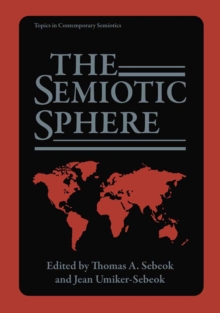
Classics of Semiotics PDF
Edited by Martin Krampen, Klaus Oehler, Roland Posner, Thomas A. Sebeok, Thure von Uexkull
Part of the Topics in Contemporary Semiotics series
Description
This book is designed to usher the reader into the realm of semiotic studies.
It analyzes the most important approaches to semiotics as they have developed over the last hundred years out of philosophy, linguistics, psychology, and biology.
As a science of sign processes, semiotics investigates all types of com- munication and information exchange among human beings, animals, plants, internal systems of organisms, and machines.
Thus it encompasses most of the subject areas of the arts and the social sciences, as well as those of biology and medicine.
Semiotic inquiry into the conditions, functions, and structures of sign processes is older than anyone scientific discipline.
As a result, it is able to make the underlying unity of these disciplines apparent once again without impairing their function as specializations.
Semiotics is, above all, research into the theoretical foundations of sign- oriented disciplines: that is, it is General Semiotics.
Under the name of Zei- chenlehre, it has been pursued in the German-speaking countries since the age of the Enlightenment.
During the nineteenth century, the systematic inquiry into the functioning of signs was superseded by historical investigations into the origins of signs.
This opposition was overcome in the first half of the twentieth century by American Semiotic as well as by various directions of European structuralism working in the tradition of Semiology.
Present-day General Semiot- ics builds on all these developments.
Information
-
Download - Immediately Available
- Format:PDF
- Publisher:Springer US
- Publication Date:29/06/2013
- Category:
- ISBN:9781475797008
Information
-
Download - Immediately Available
- Format:PDF
- Publisher:Springer US
- Publication Date:29/06/2013
- Category:
- ISBN:9781475797008










